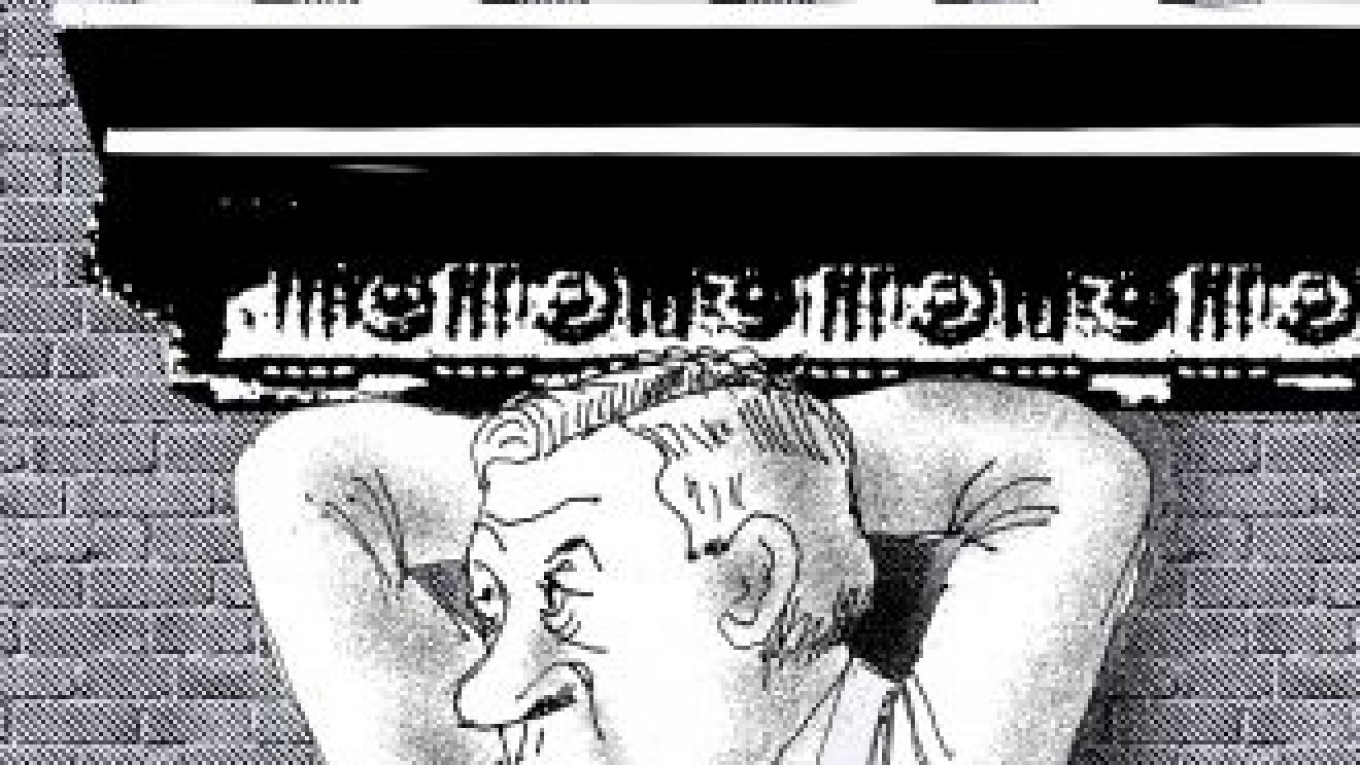Few people know that the largest organizations in Russian society are trade unions. The official figures are staggering. The Federation of Independent Trade Unions of Russia currently includes 49 trade unions with a total membership of roughly 25 million people.
As with many things in Russia, trade union activity is highly monopolized, with 95 percent of all union members belonging to the Federation of Independent Trade Unions. Other, independent trade unions — like all organizations in Russia that attempt to challenge political and economic monopolies — are persecuted. They are banned from businesses, their leaders are fired from their jobs and beaten, and it is extremely difficult for new independent unions to register.
On Friday, the Federation of Independent Trade Unions re-elected its incumbent leader, Mikhail Shmakov, to his fifth consecutive five-year term. Thus, by the time his current term ends, Shmakov will have enjoyed a quarter century in power, a vivid example of how loyalty to the Kremlin can pay off. Unfortunately, Russia’s working class get the short end of the deal.
Shmakov was elected with 568 votes and only 11 opposing — a result that rivals any Soviet trade union congress of the 1970s or even 1930s. The only alternative candidate, United Russia member and State Duma Deputy Andrei Isayev, withdrew his candidacy to serve as Shmakov’s deputy on a pro bono basis.
Underscoring the strong link between the government and its favorite trade union, Prime Minister Vladimir Putin attended the congress, promising not to increase the work week to 60 hours or to raise the retirement age. Putin, like the delegates, was very pleased with the work of the trade unions under Shmakov’s leadership.
Five years ago, Shmakov personally introduced an amendment to the Federation of Independent Trade Unions charter stating that nobody over the age of 60 could be elected federation president. He even explained his bold move by saying that, in the future, the road should be open for a young trade union leader. None of that prevented him from being elected to another five-year term at age 61.
Russian society derives little, if any, benefit from Shmakov’s trade union. According to a VTsIOM survey, half of all Russians are certain nobody at all is protecting their labor rights. In the past year, only one in 20 workers appealed to the trade unions for protection of their rights. The Academy of Science’s Institute of Sociology found that only 3 percent of workers took part in the work of their trade unions over the last three years, and only 1 percent participated in rallies and strikes organized by their unions — which is particularly remarkable given that this time period coincided with a deep economic crisis that led to widespread furloughs, pay cuts and layoffs. All surveys report the same finding: Over the past two decades, the people have little trust or faith in the usefulness of trade unions.
Far from being a champion of workers’ rights, Shmakov has become another Kremlin-friendly career politician. The Federation of Independent Trade Unions is just another cheap imitation of a democratic institution in Russia, just like the country’s elections, the court system and the parliament.
Social stratification has grown steadily throughout the post-Soviet period with 20 percent to 25 percent of the population falling below above the poverty level. The income gap between top managers and workers is more than 100 times.
The collapse of the trade union movement represents the failure of developing an institution that it critical to civil society and democracy — protecting workers’ rights against government and management abuse. Trade unions remain submissive and passive appendages to the ruling powers that promote the interests of Kremlin-friendly business interests and state capitalism in general.
Many institutions in modern Russian society have remain unchanged since the Soviet era, but the impotent and servile nature of the country’s monopoly trade union is clearly one of the worst examples of this ossification.
Vladimir Ryzhkov, a State Duma deputy from 1993 to 2007, hosts a talk show on Ekho Moskvy and is co-founder of the unregistered Party of People’s Freedom.
A Message from The Moscow Times:
Dear readers,
We are facing unprecedented challenges. Russia's Prosecutor General's Office has designated The Moscow Times as an "undesirable" organization, criminalizing our work and putting our staff at risk of prosecution. This follows our earlier unjust labeling as a "foreign agent."
These actions are direct attempts to silence independent journalism in Russia. The authorities claim our work "discredits the decisions of the Russian leadership." We see things differently: we strive to provide accurate, unbiased reporting on Russia.
We, the journalists of The Moscow Times, refuse to be silenced. But to continue our work, we need your help.
Your support, no matter how small, makes a world of difference. If you can, please support us monthly starting from just $2. It's quick to set up, and every contribution makes a significant impact.
By supporting The Moscow Times, you're defending open, independent journalism in the face of repression. Thank you for standing with us.
Remind me later.








